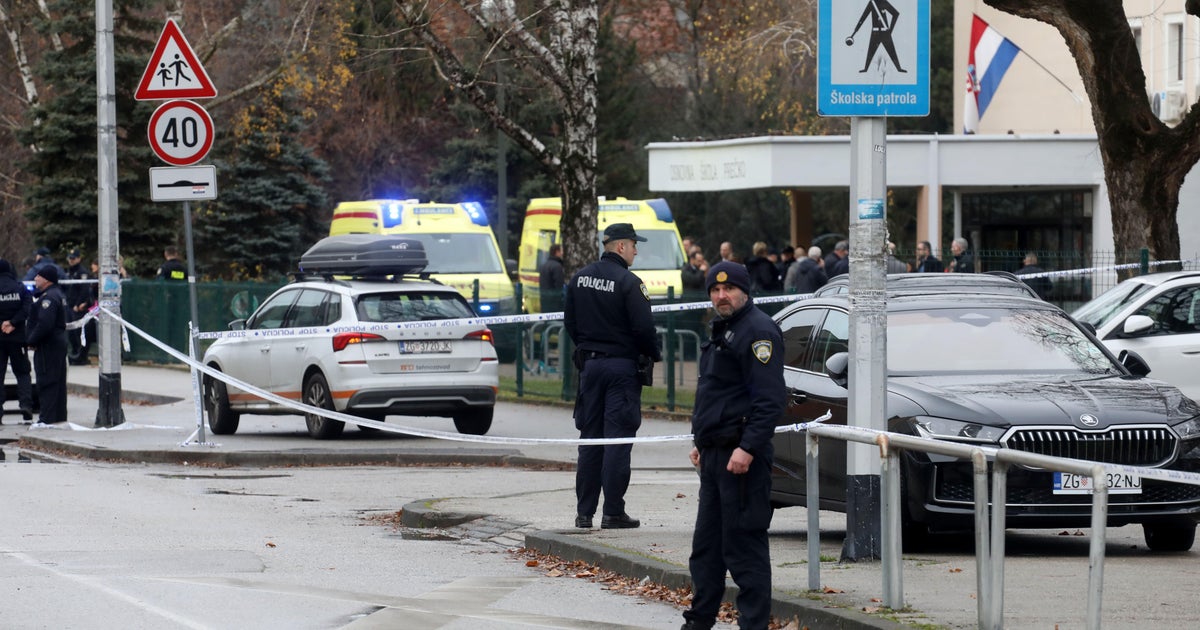Afghans accuse Taliban of killing 333 people as U.S. pulls thousands of troops out
Almost 900 Afghan security personnel and 150 civilians were killed or wounded in a wave of Taliban attacks across Afghanistan last week. The insurgents' onslaught made for the deadliest week in the history of the 19-year conflict, but it hasn't stopped the government, the insurgents, or the U.S. from pushing publicly for a peace deal.
The Afghan government accused the Taliban of carrying out 422 attacks over just seven days, leaving 291 Afghan National Defense and Security forces dead and 550 more wounded. In the same period, the insurgents are accused of killing 42 civilians, including women and children, and wounding 105 others.
The government's unusual release of official casualty figures for security forces appeared to be aimed at highlighting the surge in Taliban assaults as the U.S. moves forward with a military withdrawal long promised by President Donald Trump.
The Pentagon has now completed the first phase of its troop withdrawal. The move is part of an agreement reached unilaterally between the U.S. and the Taliban aimed at winding down America's military role in the Afghan conflict. The process is also meant to see the launch of long awaited "intra-Afghan" talks, between the insurgent group and the government in Kabul.
President Ashraf Ghani's government remained largely sidelined by its much larger military partner as Washington negotiated the withdrawal agreement with the Taliban. While voicing public optimism about the Afghan security forces' ability to assume responsibility for the country's security, concern has been expressed by commanders on both sides. The Taliban continues to control vast swathes of territory, and it has demonstrated an ability to attack when and where it chooses.
As Muslims marked the end of Ramadan at the end of May, the Taliban and the Afghan government agreed to observe a three-day truce. Both sides said they would continue to observe the ceasefire after that period, but not declare it publicly as an official truce.
Taliban has rejected the Afghan government's report of a spike in insurgent attacks, calling it "propaganda" aimed at undermining the still-unscheduled intra-Afghan talks. Amid the violence of the last week, the Taliban claimed it was merely defending its forces from attacks launched by the government. Regardless, the "undeclared truce" has been a bloody one.
"The Taliban's commitment to reduce violence is meaningless, and their actions inconsistent with their rhetoric on peace," Afghan National Security Council spokesman Javid Faisal told CBS News.
The U.S. government insists there's no military solution to the ongoing conflict, and has already reduced its troop numbers in Afghanistan from about 12,000 to 8,600 under the withdrawal arrangement with the Taliban, General Frank McKenzie, the commander of U.S. forces in the Middle East confirmed last week.
Under the deal signed in Doha, Qatar, all American forces are to leave Afghanistan by the end of May 2021. However, that complete withdrawal is "conditions based," and to make it happen the Taliban must:
- Demonstrate that it has cut links with al Qaeda and other terrorist groups;
- Ensure Afghan soil is no longer used as a base by terrorist organizations to plot against the U.S.;
- Reduce the level of violence in Afghanistan;
- Engage with the Afghan government in an intra-Afghan peace dialogue aimed at shaping a future power-sharing government.
Last Thursday, McKenzie said the "jury is still out" on whether the Taliban intends to make good on its promises, according to CBS News senior national security correspondent David Martin.
Monday brought another attack, meanwhile. Gunmen opened fire on a vehicle belonging to the Afghan attorney general's office on the outskirts of Kabul. Five employees, including two prosecutors, were killed in the attack. No group claimed responsibility for the assault.
The prosecutors killed in the shooting were members of a team overseeing the release of Taliban prisoners — another part of the U.S.-Taliban deal signed in Doha. They were visiting the Bagram detention center, where many Taliban prisoners are held, when they came under attack, according to Jamshid Rasooli, a spokesman for the attorney general's office.
Zalmay Khalilzad, the Trump administration's senior envoy for Afghan reconstruction, who the led negotiations with the Taliban, condemned the attack and urged a full investigation.
The attack "carried out by enemies of peace" highlighted efforts by "spoilers (both domestic and foreign) trying to disrupt and delay" the peace process, Khalilzad said.
He urged both the Afghan government and the Taliban to "push forward to take the steps necessary to reach intra-Afghan negotiations, where a comprehensive ceasefire & a political settlement can be negotiated as quickly as possible. This is what the Afghan people want and we stand with them."




